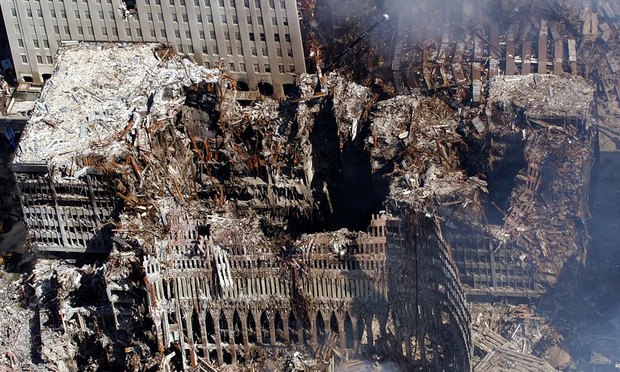 Photo: Eric J. Tilford
Photo: Eric J. Tilford
On the 18th anniversary of the September 11, 2001, terror attacks, the world remembers and mourns the 2,977 lives lost that day.
In addition to the immeasurable human cost of the deadliest terrorist attack in U.S. history, 9/11 also had a far-reaching economic impact on U.S. markets and businesses—especially the insurance industry.
Government estimates price property damage alone at about $100 billion. Other estimates of the total economic damage inflicted by the attacks range from $2 trillion to $3.3 trillion.
The Insurance Information Institute (III) estimates insurance losses from the 9/11 attacks, which remains history's most expensive terrorist incident, at approximately $47 billion in 2019 dollars.
Before 9/11, commercial insurers often neither charged for nor specifically excluded terrorism coverage. U.S.-based and international insurers were able to pay virtually all of the claims related to 9/11, but the event and its $47 billion cost demonstrated to insurers that if another terrorist attack were to occur, the industry could not cover those losses on its own.
Congress Responds with TRIA
Addressing the insurance industry's concerns, Congress enacted the Terrorism Risk Insurance Act of 2002 (TRIA), which created a federal backstop for insurance claims related to acts of terrorism, requiring that business insurers offer terrorism coverage for the types of insurance included in the act. TRIA provides for a transparent system of shared public and private compensation for insured losses resulting from acts of terrorism, designed to keep terrorism risk insurance available and affordable.
TRIA was renewed three times—in 2005, 2007, and 2015. It is currently set to expire on December 31, 2020. While that is still a year away, commercial insurers are concerned and preparing for a market without TRIA. They also are warning officials about the consequences of inaction.
What Happens If TRIA Expires?
A newly published white paper from III, "A World Without TRIA: Incalculable Risk," outlines TRIA's history and impact, and explains what could happen if TRIA is allowed to expire on December 31, 2020.
To get an idea of what a world without TRIA would look like, III examined two periods post-9/11 when there was no federal backstop for terrorism insurance.
First, during the period immediately after the attacks, the market for terrorism risk insurance contracted severely and had potentially wide-reaching effects on the U.S. economy, the III paper explains.
Second, in 2015, TRIA lapsed for two weeks after Congress failed to reauthorize the act before it expired on December 31, 2014. The market remained stable since the lapse was so short, but some say the longer the lapse would have lasted, the more the market would have been affected, particularly for workers' compensation.
During that lapse, the Congressional Budget Office (CBO) published a report that examined possible consequences if the backstop were to not return. In the report, the CBO concludes that "the private market would not expand to fully offset the loss of federal reinsurance" and cites the difficulties in pricing terrorism risk. Outlining the impacts on insureds, the CBO report predicts that consumers would have fewer insurers to choose from, their premiums would be higher, and coverage limits would be lower.
Additionally, the report concludes, "The effects on policyholders will probably be felt more acutely in high-risk areas, and economic activity (particularly construction) in such areas may be reduced."
The Future of TRIA and TRIP
Looking at 2021, the future of TRIA is uncertain, as is how the marketplace might change if the program were to expire on December 31, 2020. What is certain is that failure to reauthorize TRIA would cause significant disruption.
III's white paper notes, "Uncertainty around the future of TRIP imposes costs on its own, as insurers and reinsurers begin to renegotiate with the possibility that TRIP may not be re-authorized. Acts of terror are unpredictable. Uncertainty regarding government support and the regulatory environment complicates the issue."
From: PropertyCasualty360
© 2025 ALM Global, LLC, All Rights Reserved. Request academic re-use from www.copyright.com. All other uses, submit a request to [email protected]. For more information visit Asset & Logo Licensing.




